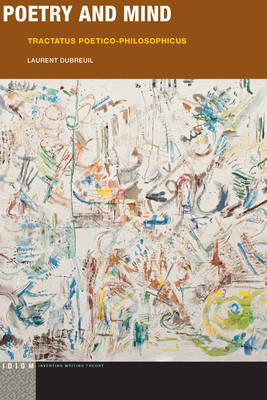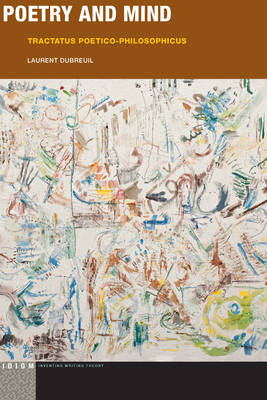
- Afhalen na 1 uur in een winkel met voorraad
- Gratis thuislevering in België vanaf € 30
- Ruim aanbod met 7 miljoen producten
- Afhalen na 1 uur in een winkel met voorraad
- Gratis thuislevering in België vanaf € 30
- Ruim aanbod met 7 miljoen producten
Zoeken
Omschrijving
What one cannot compute, one must poetize: this essay theorizes the extraordinary regimes of human mental experience by putting the emphasis on poetry. Poetry grants us the ability to move "beyond the limits of thought" and to explore the beyond of cognition. It teaches us to think differently. An elliptic response to Wittgenstein's point of arrival in the Tractatus, this book is first and foremost an interdisciplinary study of poetry, drawing on literary theory, philosophy, and cognitive science. The work conducted on minds and brains over the last decades in psychology, artificial intelligence, or neuroscience cannot be ignored, if, as "humanists," we are ever interested in the way we think. Thus, a constant dialogue with the positive examination of cognition serves to better situate the normal regimes of thought--and to underline the other mental possibilities that literature opens up. This essay shows that poetry--a very widespread and possibly universal phenomenon among humans--arises through syntactic structures, cognitive binding, and mental regulations; but that, in going through them, it also exceeds them. The best poems, then, are not only thought experiments but actual thinking experiments for the unthinkable. They expand the usual semantics of natural languages, they singularly deploy the rhetorical armature of speech. They tend to exceed their own algorithms, made of iterations and linguistic re-organizations. They are often reflexive, strange, cognitively dissonant. They provide detachable, movable, and livable significations to our selves. The literary scope of this book is more than "global: " it is uniquely broad and comparative, encompassing dozens of different traditions, oral or written, from all continents, from Ancient times to the contemporary era, with some thirty specific readings of texts, ranging from Sophocles to Gertrude Stein, from Wang Wei to Aimé Césaire, or from cuneiform tablet to rap music.
Specificaties
Betrokkenen
- Auteur(s):
- Uitgeverij:
Inhoud
- Aantal bladzijden:
- 128
- Taal:
- Engels
- Reeks:
Eigenschappen
- Productcode (EAN):
- 9780823279630
- Verschijningsdatum:
- 3/04/2018
- Uitvoering:
- Hardcover
- Formaat:
- Genaaid
- Afmetingen:
- 155 mm x 231 mm
- Gewicht:
- 340 g

Alleen bij Standaard Boekhandel
+ 206 punten op je klantenkaart van Standaard Boekhandel
Beoordelingen
We publiceren alleen reviews die voldoen aan de voorwaarden voor reviews. Bekijk onze voorwaarden voor reviews.











